As a dental patient with special needs, the thought of visiting the dentist can be overwhelming and downright scary. Fortunately, sedation dentistry is an option that can make all the difference in providing a comfortable and stress-free experience for patients with disabilities or sensory issues. In this blog post, we’ll explore how sedation dentistry works and why it’s such a game-changer for those who require additional support during their dental appointments. So sit back, relax, and let’s dive into this important topic!
Introduction to Sedation Dentistry
Sedation dentistry is a branch of dentistry that uses medication to help patients relax during dental procedures. It can be used for patients with special needs, who may have difficulty sitting still or cooperating during dental treatment.
Sedation can make dental procedures more comfortable for patients with special needs, and it can also help them to be more cooperative during treatment. In some cases, sedation may be the only way to provide necessary dental care for these patients.
There are different types of sedation that can be used, depending on the procedure and the patient’s needs. The most common type of sedation used in dentistry is oral conscious sedation, which is taken by pill before the procedure. This type of sedation helps to relax patients and make them drowsy, but they are still able to respond to commands and answer questions.
Other types of sedation include IV sedation, which is given through a vein in the arm; nitrous oxide, which is inhaled through a mask; and general anesthesia, which puts the patient into a deep sleep. Your dentist will determine the best type of sedation for you based on your medical history and the procedure being performed.
If you have special needs and are considering sedation dentistry, talk to your dentist about whether it is right for you. Sedation dentistry can provide safe and effective dental care for many patients with special needs.
Who Can Benefit from Sedation Dentistry?
Sedation dentistry can be a godsend for patients with special needs, who may have a difficult time getting dental work done otherwise. Patients with special needs include those with:
-Autism spectrum disorder
-Intellectual disability
-Down syndrome
-Cerebral palsy
Each of these conditions can make it hard for patients to communicate their needs or understand what’s happening around them. That can make going to the dentist a scary and overwhelming experience. But sedation dentistry can help take the edge off, making it possible for these patients to get the dental care they need.
Types of Sedation Used in Dentistry
There are a few different types of sedation that can be used in dentistry, and the type that is best for a patient depends on their individual needs. For example, some patients may only need a small amount of sedation to help them relax, while others may need to be completely asleep during their procedure.
Some of the most common types of sedation used in dentistry include:
• Oral Sedation: This type of sedation involves taking a pill before your appointment. The pill will help you to feel more relaxed, but you will still be awake and able to communicate with your dentist.
• Nitrous Oxide: Nitrous oxide, also known as “laughing gas”, is a gas that you breathe in through a mask during your procedure. It will make you feel lightheaded and relaxed, but you will still be awake and able to communicate with your dentist.
• IV Sedation: IV sedation is administered through an IV in your arm. It will make you feel very sleepy and you may not remember much about your procedure afterward. However, you will still be able to respond to commands from your dentist.

Advantages and Disadvantages of Sedation Dentistry
Sedation dentistry can be very beneficial for patients with special needs, who may have a difficult time getting through dental procedures without sedation. However, there are also some potential disadvantages to consider before choosing sedation dentistry.
Advantages:
1. Sedation can help reduce anxiety and fear associated with dental procedures, making it easier for patients to get through treatment.
2. It can also help patients who have a hard time staying still during dental procedures to remain relaxed and still throughout the procedure.
3. In some cases, sedation dentistry can also help reduce pain during dental procedures.
Disadvantages:
1. There is always a risk of complications when undergoing any type of sedation, so it’s important to make sure you are comfortable with the risks before choosing this option.
2. Sedation dentistry can often be more expensive than traditional dental procedures since it requires additional training and equipment for the dentist and staff.
3. In some cases, patients may not be able to drive themselves home after their procedure if they have been heavily sedated, so arrangements will need to be made in advance for someone else to drive them home safely.
Risks Associated with Sedation Dentistry
There are always risks associated with any type of surgery, however, serious complications from sedation dentistry are very rare. The most common side effects include:
-Drowsiness
-Nausea
-Vomiting
-Diarrhea
These side effects are usually short-lived and go away on their own within a few hours. If you experience any of these side effects after your procedure, we recommend that you rest and drink plenty of fluids. Serious complications from sedation dentistry are very rare, but can include:
-Allergic reactions to the medication
-Breathing difficulties
-Heart problems
How to Choose a Qualified Professional for Sedation Dentistry
When it comes to choosing a qualified professional for sedation dentistry, there are a few things you need to take into consideration. Here are a few tips on how to choose a qualified professional for sedation dentistry:
1. Make sure the dentist is licensed and accredited. Dentists should be licensed by the state in which they practice. They should also be accredited by the American Dental Association (ADA).
2. Ask about the dentist’s experience with sedation dentistry. The dentist should have experience in administering sedation dentistry. They should also be familiar with the different types of sedation available.
3. Inquire about the dentist’s training and education in sedation dentistry. The dentist should have received training and education from an accredited institution in sedation dentistry.
4. Find out what type of sedation the dentist uses. There are four different types of sedation available: oral consciousness, nitrous oxide, intravenous, and general anesthesia. Each type of sedation has its own set of risks and benefits. Be sure to ask the dentist about the type of sedation they use and why they prefer it over other types of sedation.
5. Ask about the side effects of sedation dentistry. Sedation dentistry can cause side effects such as drowsiness, dizziness, nausea, and vomiting. Be sure to ask the dentist about these side effects and how they can be managed if they occur during
Conclusion
Sedation dentistry can make a big difference in the lives of those with special needs. It provides an opportunity for them to receive the dental care they need without any fear or anxiety, which is often much more difficult when traditional methods are used. Furthermore, sedation dentistry allows for a smoother and quicker procedure with fewer complications which can provide great comfort to both patient and dentist alike. If you or your loved one has special needs and requires dental care, consider discussing the benefits of sedation dentistry with your dentist so that you can get all the necessary treatment in a safe and comfortable environment.
Sedation dentistry is the use of medication to help patients relax during dental procedures. Sedation can be used for a variety of dental procedures, including routine cleanings, fillings, and extractions.
Patients with special needs who have anxiety or fear about dental procedures can benefit from sedation dentistry. Sedation can also be helpful for patients who have difficulty getting numb during dental procedures.
There are different types of sedation available, including oral conscious sedation and IV sedation. Oral conscious sedation involves taking a pill before your appointment to help you relax. IV sedation puts you in a semi-conscious state and is administered through an IV in your arm. You will not be asleep during the procedure, but you may not remember much about it afterward.




